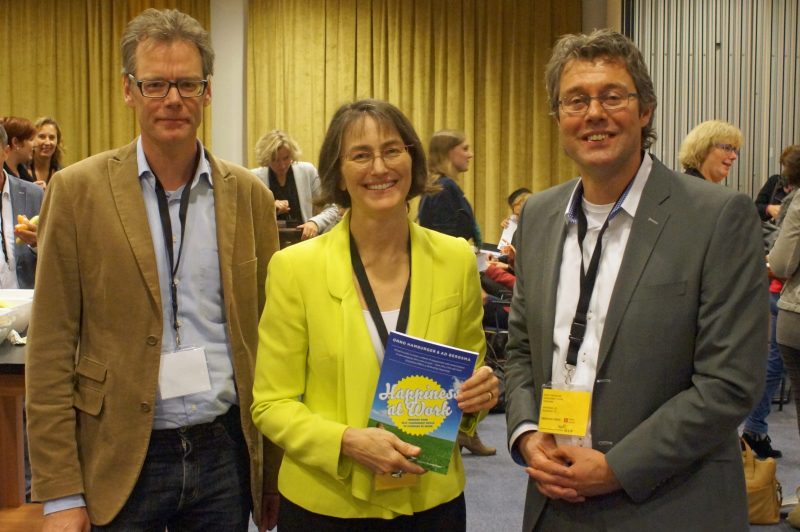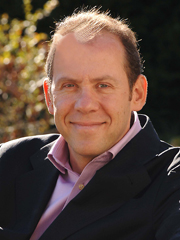 What is happy cattle?
What is happy cattle?
Research by Newcastle University shows that cows that are named and treated with a more personal touch, feel much more comfortable in their own skin. These so-called “happy cattle” reward their caretakers by up to 580 liters of extra milk compared to their less fortunate peers.
More milk annually
What could we learn from such happy cows? I’m not the first to point at the relationship between cows and employees. Peters and Pouw write in their wonderful book Intensive Human Husbandry (Dutch title: Intensieve Menshouderij) how more and more organizations start to resemble a kind of factory farming for people.
Division of labor and workplace optimization is central to such workplaces. Peters and Pouw rightly wonder whether such intensive Human Husbandry actually leads to the best output.
In Ford’s time (early 20th century) the division and optimization of work resulted in lots of extra productivity. Workers had to work, after all, with muscle power and the brainpower was best left behind at the company gate.
Just as cows will produce less milk if they are treated as ‘things’, people will respond alike.
Employees who have little autonomy and few meaningful experiences in their daily work become chronically stressed, are more likely to get sick and are less effective.
What differs humans from a cow?
While cows can still be optimally stimulated when they get personal attention, this is but a starting point for man. Few organizations seem to really understand this and apply it in practice. Some organizations, like Google or Ikea seem to get it, consciously or unconsciously. And they’re miles ahead of the competition. These companies managed to create an atmosphere of safety and trust. In addition, they give people lots of room and autonomy to develop themselves. The result is huge commitment and constant innovation by employees.
Development and meaning as protection against stress
Recent recession and associated uncertainty creates a sense of insecurity and anxiety for many employees. Some companies choose to put activities related to personal development and meaning on the back burner. Countering fear must be the first priority.
As is found with cattle, people are less productive with excess of cortisol (stress hormone). Cows with excess cortisol have reduced milk production. With people, such excess leads to reduced resistance and impaired brain functions. Let’s not forget that a sense of purpose and personal development can also lead to the much needed rest and focus.
Many people nowadays are looking for direction and vision. The old days silo structured stories from churches and unions, biased through affiliated newspapers, radio- and television stations have largely disappeared (we call this in Dutch ‘de-pillarisation’). People are thrown back to themselves and are eagerly looking for direction and meaning.
Why are we doing this? Which way should I go? What is the right choice? When you employ people and assist them with answering such questions, you provide highly necessary peace of mind and security. I’d say it is time for a little less focus on material rewards and more attention to intangible rewards such as development opportunities. Eventually this leads to more sustainable happy employees.
Like with our cows this leads to the productivity improvement and innovation of which businesses are direly in search of at this particular moment. And this closes the loop between cattle and people.
This article was originally published in Dutch on GelukkigWerken.nl on 1 feb 2009





 We are in a crisis. No one can deny that! Part financial crisis but also a crisis to reorganize the way we work. The internet and the economic changes it creates is completely changing the way we work and interact. And we have to do more with fewer people. Markets are changing rapidly or are disappearing all together. This generates fear and insecurity. At the same time we need inspiration, innovation and openness towards new ideas to overcome our challenges in a totally different way.
We are in a crisis. No one can deny that! Part financial crisis but also a crisis to reorganize the way we work. The internet and the economic changes it creates is completely changing the way we work and interact. And we have to do more with fewer people. Markets are changing rapidly or are disappearing all together. This generates fear and insecurity. At the same time we need inspiration, innovation and openness towards new ideas to overcome our challenges in a totally different way.
 What is happy cattle?
What is happy cattle?